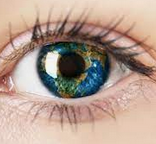| Holiday makers heading across the channel this summer have been warned mosquitoes are spreading further into northern and western Europe, bringing diseases such as dengue and yellow fever with them.
Invasive mosquito species are now established in three times more regions than a decade ago, according to the European Centre for Disease Prevention and Control.
The health watchdog said the trend was being driven by increasingly frequent and severe heat waves. Floods are also providing ideal conditions for mosquitoes including the Aedes albopictus – known to carry chikungunya and dengue viruses – to thrive.
In 2013, the species had gained a foothold in eight countries across the continent, affecting 114 regions. A decade later, the Aedes albopictus is now established in 13 countries and 337 regions – including all of Italy and Croatia, and parts of Spain, France and Germany.
Its cousin, the stripey Aedes aegypti, is not so well adapted to temperate climates, but has also been spotted in countries including Georgia and Cyprus. This is of particular concern as the insect is not only a more efficient transmitter of dengue and chikungunya, but it also carries pathogens such as yellow fever.
Sarah Newey explores the potential threat facing tourists travelling to Europe. |









